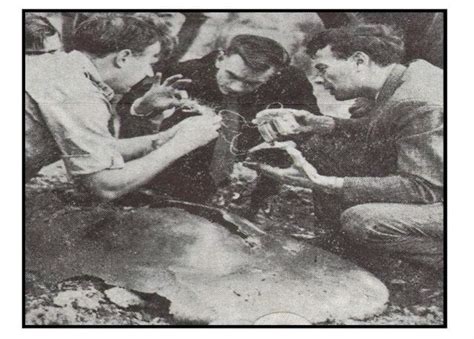By Charles Lear
 In 1957, the same year the Soviets launched Sputnik, British authorities, media, and citizenry had their attention drawn back down to Earth as they attempted to unravel the mystery of a flying saucer said to have been found laying in a moor. It was dismantled, studied, and opinions were divided between its having come from space and its having been manufactured right here on Earth. Over time, the saucer went missing, but the mystery as to its origin remained. Then, in 2018, pieces of the saucer and its mysterious contents were found in the archives of the Science Museum in London.
In 1957, the same year the Soviets launched Sputnik, British authorities, media, and citizenry had their attention drawn back down to Earth as they attempted to unravel the mystery of a flying saucer said to have been found laying in a moor. It was dismantled, studied, and opinions were divided between its having come from space and its having been manufactured right here on Earth. Over time, the saucer went missing, but the mystery as to its origin remained. Then, in 2018, pieces of the saucer and its mysterious contents were found in the archives of the Science Museum in London.
The case was first reported in the December 9, 1957 Yorkshire Post in an article headlined “Mystery Object Found on Scarborough Moors” with the sub-headline “Has Unusual Hieroglyphics.” It was written about in detail in the March-April 1958 issue of Flying Saucer Review.
According to the Flying Saucer Review article headlined “The Silpho Moor Mystery,” a man “who writes under the pen name Antony Avendel” had examined an object discovered lying in Silpho Moor near Scarborough. The object is described as being shaped like a top, weighing 35 pounds, having a diameter of 18 inches, and having hieroglyphics on its outside. It was made of a double skin of 3/16” copper. A “burnt powdery substance” was found inside along with a copper book rolled up and inserted into a coil of copper tubing. The book was made of 17 copper sheets containing over 2000 words “engraved in phonetic-type symbols.”